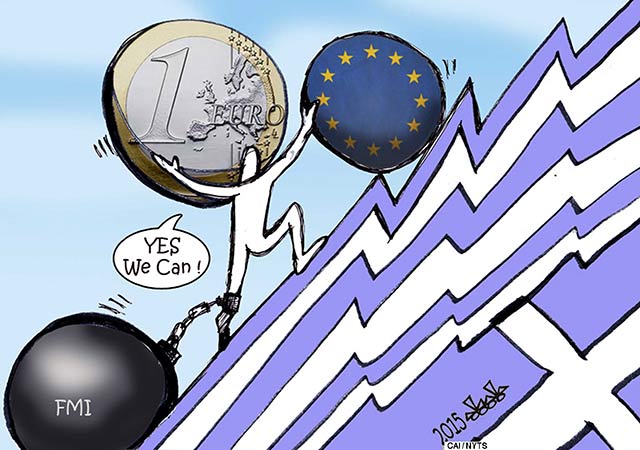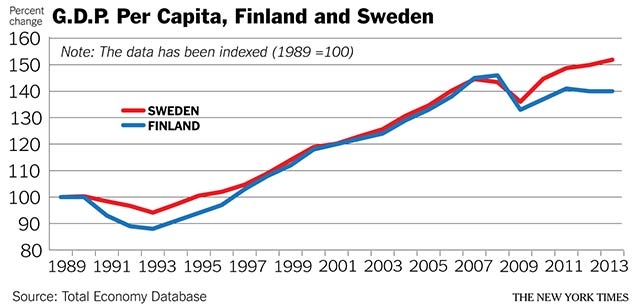
Honest, paywall-free news is rare. Please support our boldly independent journalism with a donation of any size.
Are there good arguments against the proposition that the creation of the euro was an epic mistake? Maybe. But the arguments I’ve been hearing lately are really bad. And they’re also deeply annoying.
One argument I keep hearing is that critical economists like me don’t understand that the creation of the euro was a political and strategic project, not merely a matter of economic costs and benefits. Yes, I’m a dumb, uncouth economist, completely unaware of the role of politics and international strategy in policy decisions, and one who has never heard of the European project and its origins in the effort to put the Continent’s legacy of war behind it, not to mention strengthen democracy during the Cold War.
Actually, I do know all about that. The point, however, is that while the European project has combined economic objectives with broader political goals at every stage – it’s about peace and democracy through integration and prosperity – that project can’t be expected to work unless the economic measures are good ideas in and of themselves (or at least noncatastrophic ones). What happened in the march toward the euro was that European elites, in love with the symbolism of a single currency, closed their minds to warnings that the currency union – unlike the removal of trade barriers – was, at best, ambiguous in its economic logic, and arguably a very bad idea indeed.
An alternative argument, which we’re hearing from depressed European economies like Finland, is that the short-term costs of inflexibility are outweighed by the supposedly huge gains from greater economic integration. But where’s the evidence for these huge gains? According to a recent New York Times article by Neil Irwin, these gains are demonstrated by Finland’s strong growth before the recent crisis. But is it plausible to give credit for the Nokia boom to the single currency?

Well, the chart here shows an interesting comparison between Finland and its neighbor Sweden, where voters rejected membership in the euro in a 2003 referendum. (I remember that vote: Swedish friends who shared my worries about the euro called me in the middle of the night to celebrate.) For both countries I used 1989 as a baseline; that was the year before the great Scandinavian slump of the 1990s, brought on by runaway banks and a huge housing bubble.
After the slump, Finland experienced a long stretch of solid economic growth. But so did Sweden, and it’s hard to see any real difference between their degrees of success. There’s certainly nothing here to indicate that euro membership was crucial to growth. Since 2008, on the other hand, Sweden has – despite bobbling its monetary policy – done much better.
As I said, maybe there are good arguments against the idea that the euro was a mistake. But pointing out that politics matters, and economies grow, doesn’t cut it; these aren’t the factoids you should be looking for.
Press freedom is under attack
As Trump cracks down on political speech, independent media is increasingly necessary.
Truthout produces reporting you won’t see in the mainstream: journalism from the frontlines of global conflict, interviews with grassroots movement leaders, high-quality legal analysis and more.
Our work is possible thanks to reader support. Help Truthout catalyze change and social justice — make a tax-deductible monthly or one-time donation today.